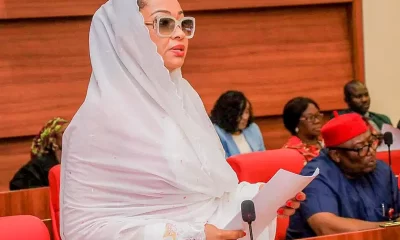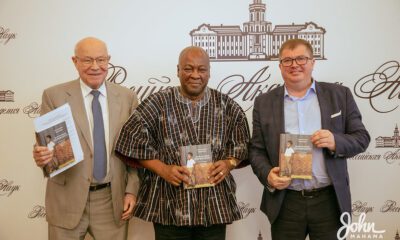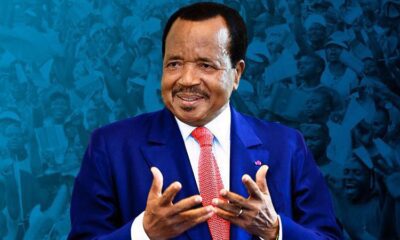National Issues
To Restructure Nigeria’s Federalism or Not? -By Tony Osborg

My good friend, Obinna Osuagwu strongly believes that corruption, political instability, and other manners of irregularity common in Nigerian politics is a result of the existing faulty federal structure. For him, as long as the present style of the federal government continues, with money being shared in Abuja, and the cash coming down to local politicians, we can never fix corruption. In other words, corruption is an inevitable by-product of our existing political structure. Once we fix this structural problem, other things would fall in place. As long as cash continues to exchange hands within the system, we cannot stop it from being stolen.
He also believes that the Niger Delta is backward because of the lack of activities in the region. The Niger Delta has no genuine economy. Oil production does not create jobs at the well-head locations. Yes, the production occurs in the Delta, but the activities that drive the economy go on in Lagos and Abuja; activities are what drives the economy and creates jobs. If the Niger Delta must become developed, it must drag down as many activities to its region and get the host communities to be actively involved in the production and activity processes. Host communities must become shareholders of every exploration company in the region. The idea of a rentier arrangement is deceptive and cannot guarantee long term development. Obinna despises the idea of a rentier state.
The major issue I am interested in is the debate on whether Nigeria should be restructured into a true fiscal federalism or not. What is true fiscal federalism? Stephen Dieseruvwe defines true fiscal federalism in simple terms: removing power from the flawed, skewed and corrupt centre. Devolving and decentralising power to the federating Units, and adopting a bottom-up approach. This is what true fiscal federalism is.
I sincerely have no objection to this idea; however, there is a salient danger in the call for restructuring that its proponents fail to discuss. This is the major reason why I have brought the discussion to the public once again. First, to restructure Nigeria’s fiscal federalism is to strip Abuja of its humongous powers, to empower the states, and introduce economic competition among the states/regions. Many states are not ripe for economic competition as they have no source of alternative income (apart from federal allocations) and the substructure to build an economy upon; how do we fix this problem?
Second, how do we ensure that a restructured Nigeria will be fair to all regions/states and economic justice will be guaranteed even to the least advantaged regions/states? How can states that currently cannot afford to pay workers cope when they are cut short of crude oil allocations? They obviously will go bankrupt!
Third, even if there is initial financial provisions for ‘poor’ states to kickstart their independent economies after the restructuring process, there is still no guarantee that these independent economies will be sustainable on the long run, considering their present level of Internally Generated Revenues. The recurrent costs of the civil service of many of these states alone consume more than what states generate internally, hence can such states survive the initial troubles that would come with the proposed restructuring? How do we control this impact? Or should we just allow such states to cater for themselves, even if it means them merging with other states to form newer ones in order to survive?
And last, while the idea of restructuring seems to favour the regions/states with existing economies and vital natural resources (i.e the South-South and South-West), does this not raise questions about the rationale behind the proposal/agitation? How does this proposal favour the rest of Nigeria, especially the Northern part?
For example, if Nigeria is restructured today, the Niger Delta will likely become richer than the rest of the country because all the cash will flow to this region instead of to Abuja (except for taxes and levies). Also, states like Osun that have been unable to pay salaries will automatically go bankrupt, and even Abuja might not survive the impact of restructuring! And the presidency will no longer be as attractive as it has become over the years. Only states with strong economic bases will survive restructuring, yet it seems like it is the major way to get our states to become productive, efficient, competitive, innovative and prosperous. In fact, it seems to be the only way.
Osuagwu has reminded us that ‘Nigeria runs a quasi-federal structure where the states have been created more for administrative purposes than for taking economic responsibility for their domains’. If we must change this, then we must restructure.
Dieseruvwe has also reminded us that the new central government had promised to support the call for restructuring. As contained in the APC manifesto, the party stated that part of its plans, if elected into power, will be to ‘Initiate action to amend the Nigerian Constitution with a view to devolving powers, duties, and responsibilities to states in order to entrench true Federalism and the Federal spirit..’ (Securing Nigeria’s Future Document, APC The 2015 Manifesto; page 6)
Someone had asked why the former President, Goodluck Jonathan, being from the South, did not champion the cause for true federalism throughout his six-year tenure. Well, General Alani Akinrinade has an answer to that question, he says, “If President Jonathan, an Ijaw man has been in government for about six years and has not been able to change the revenue mobilisation and distribution system, nor has he been able to implement the clear United Nations report on cleaning up the environmental mess in Ogoni land which costs a mere one billion dollars, it is clear that the issue is not who is in government but the structure of the federal government. It is the structure that needs to be re-designed.”
Again, I ask, should Nigeria be restructured into a true fiscal federalism, or should the status quo be maintained?
Tony Osborg writes from Port Harcourt.











